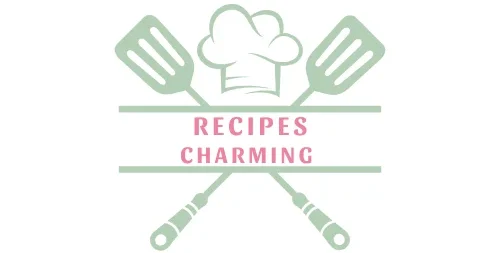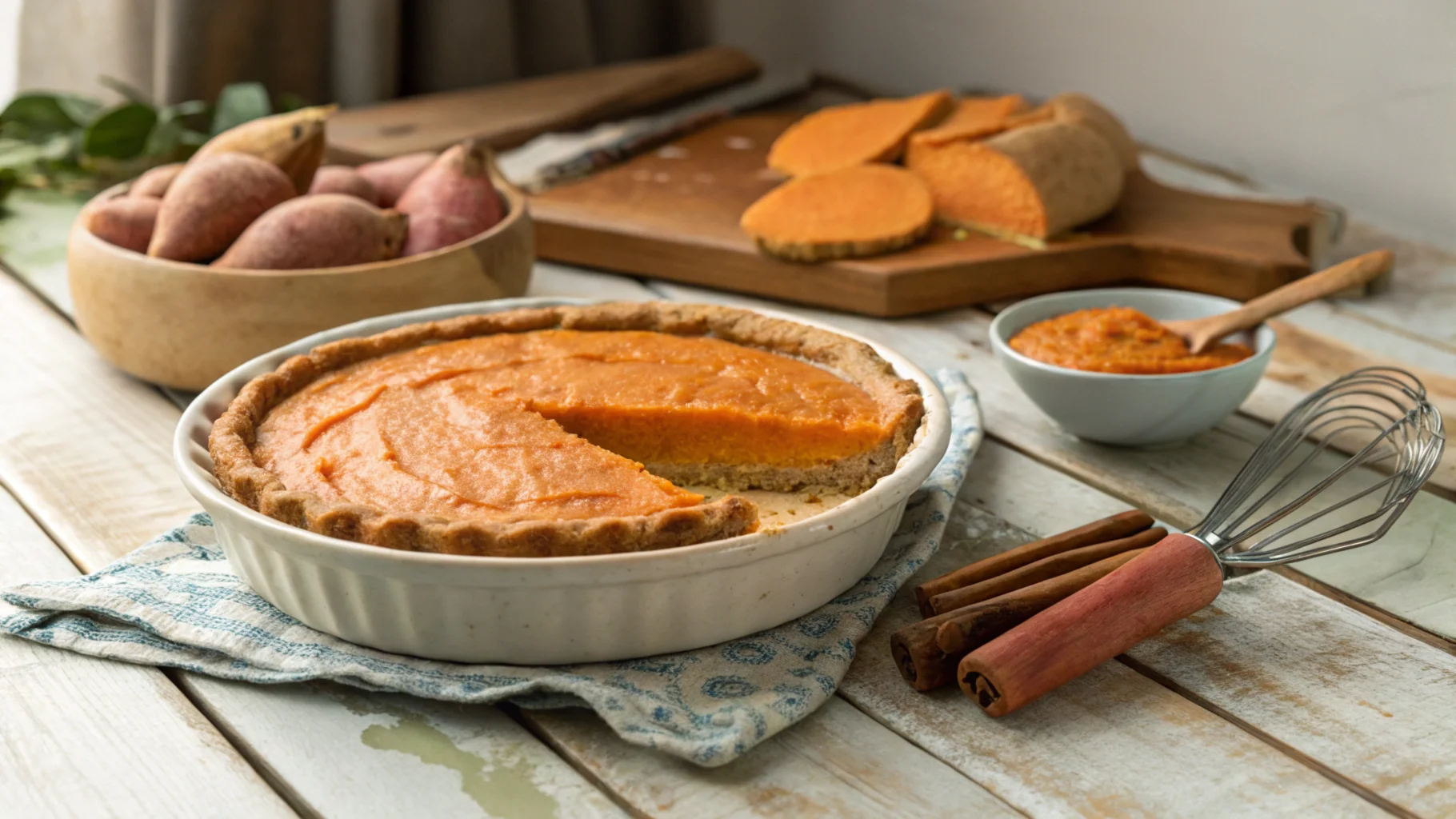Sweet potato pie is a beloved Southern dessert known for its rich flavor and smooth texture. Often enjoyed during holidays like Thanksgiving and Christmas, it combines the natural sweetness of sweet potatoes with spices like cinnamon, nutmeg, and vanilla. A common debate among bakers is the bake vs boil sweet potatoes pie question—whether it’s better to bake or boil sweet potatoes for pie. This article explores both methods, offering tips and advice to help you make the perfect bake vs boil sweet potatoes pie. For a step-by-step recipe, check out How Do You Make Sweet Potato Pie From Scratch? Easy Step-by-Step Guide.
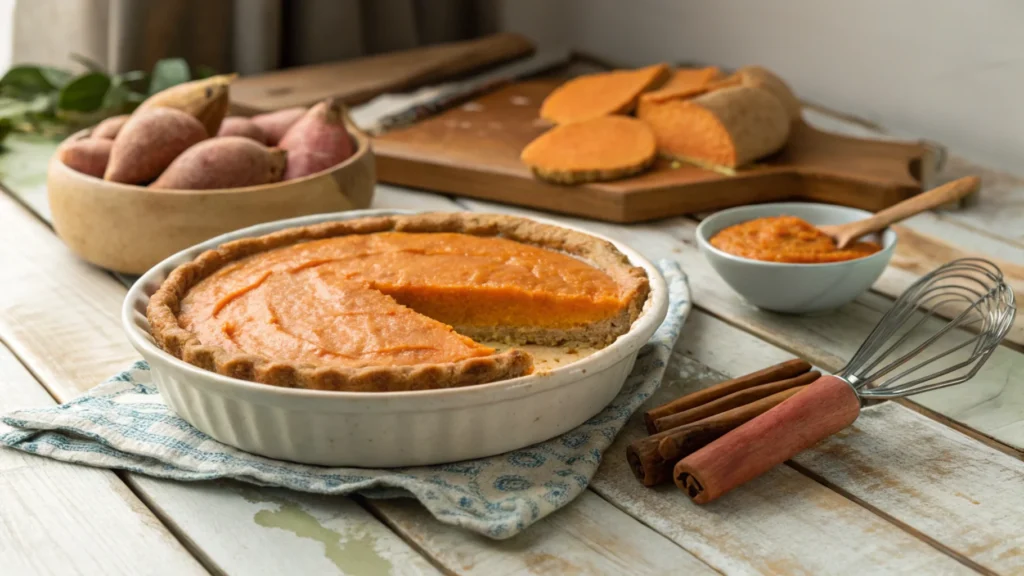
The Importance of Bake or Boil Sweet Potatoes in Pie Making
Sweet potatoes are the heart of any sweet potato pie. Their flavor, texture, and natural sweetness set the base for the pie’s character. The choice of sweet potatoes is crucial, as there are different varieties that may impact the final result. Some varieties are sweeter, while others are starchier, which affects how they cook and how they interact with other ingredients.
- Varieties of sweet potatoes like Beauregard, Jewel, and Garnet are commonly used for pies. Each of these varieties offers a different balance of sweetness and texture, and the cooking method plays a role in bringing out the best characteristics.
- Preparation techniques, whether baking or boiling, impact the flavor profile and moisture content of the sweet potatoes.
Choosing the right method for cooking sweet potatoes is essential to achieving the perfect pie. So, let’s dive into the debate: Is it better to bake or boil sweet potatoes for pie?
Nutritional Benefits of Sweet Potatoes in Desserts
Sweet potatoes are not just tasty; they also pack a nutritional punch. When used in pies, sweet potatoes offer an array of health benefits, making them a more nutritious choice for dessert than many might realize. Rich in vitamins A and C, they provide essential antioxidants and help support the immune system. Additionally, they are a good source of dietary fiber, which aids in digestion.
- High in Vitamin A: Sweet potatoes are one of the best sources of beta-carotene, which is crucial for eye health.
- Rich in fiber: This helps regulate blood sugar levels and supports digestive health.
- Antioxidants: These compounds help protect the body from oxidative stress and inflammation.
Thus, incorporating sweet potatoes into pies not only offers delicious flavor but also provides valuable nutrients that can contribute to a healthier dessert choice.
Bake or Boil Sweet Potatoes: Defining the Methods
When it comes to preparing sweet potatoes for pie, you generally have two choices: baking or boiling. Both methods have their distinct characteristics and impact the final product differently.
Baking sweet potatoes involves roasting them in the oven, typically at a moderate temperature of around 375°F (190°C). This method caramelizes the sugars in the sweet potatoes, intensifying their natural sweetness.
- Pros of Baking:
- Enhanced flavor: The caramelization process brings out a deeper, richer taste.
- Thicker texture: Baking tends to yield firmer sweet potatoes, making it easier to mash or puree them for pies.
Boiling, on the other hand, involves cooking sweet potatoes in water until tender. This method retains more moisture and is often quicker than baking.
- Pros of Boiling:
- Faster method: Boiling generally takes less time than baking, making it ideal for a quick pie preparation.
- Softer texture: Boiled sweet potatoes tend to be softer, which can be ideal for creating a smooth filling.
Now, let’s explore the key question: Is it better to bake or boil sweet potatoes for pie?
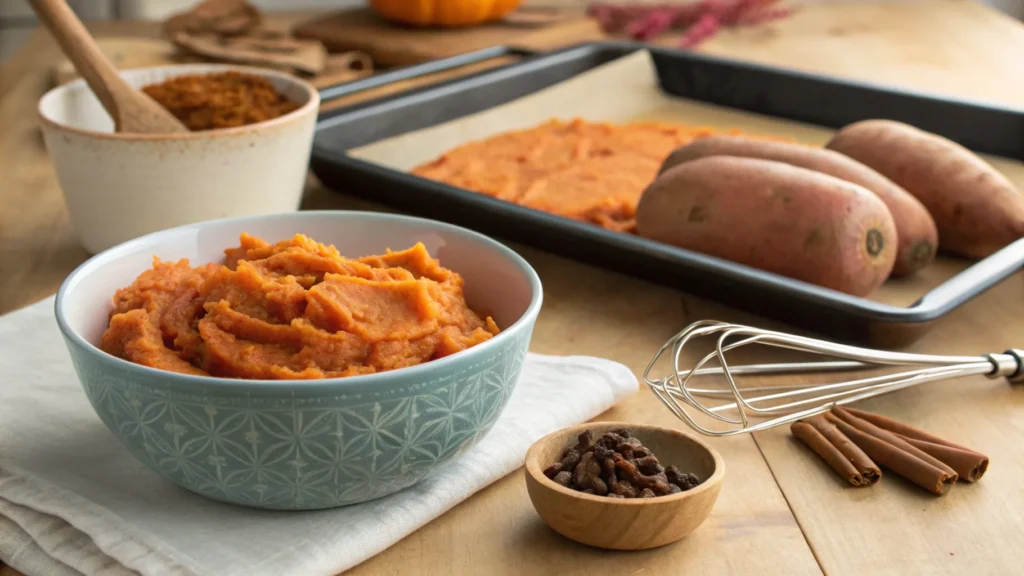
Table of Contents
Flavor Development: How Bake or Boil Sweet Potatoes Methods Impact Taste
One of the most significant factors to consider when preparing sweet potatoes for pie is how the cooking method impacts the flavor. Baking sweet potatoes can bring out a rich, roasted flavor due to the Maillard reaction, where the sugars in the potatoes react to heat, creating complex and deep flavors.
- When baking, the potatoes take on a natural caramelized sweetness, which enhances the overall flavor profile of the pie.
- Conversely, boiling sweet potatoes doesn’t allow for the same flavor development, as the sugars don’t caramelize in the same way. While the flavor is still sweet, it tends to be a bit milder and less complex.
Thus, if you’re looking for a deep, rich flavor, baking is often the preferred method. On the other hand, if you want a more subtle sweetness, boiling might be a better option.
Texture Variations: Smoothness and Consistency in Pies
The texture of your sweet potato pie filling is another crucial consideration when deciding between baking or boiling. Each method results in a slightly different consistency, and these differences can impact the final product.
- Baked sweet potatoes tend to have a firmer texture that requires more effort to mash. This can result in a denser pie filling, which some people prefer for its structure.
- Boiled sweet potatoes, on the other hand, tend to be softer and more moist, which makes them easier to mash into a smooth consistency without much effort.
If you’re aiming for a velvety smooth pie filling in the bake vs boil sweet potatoes pie debate, boiling might be the best choice. However, if you prefer a denser texture, baked sweet potatoes are ideal.
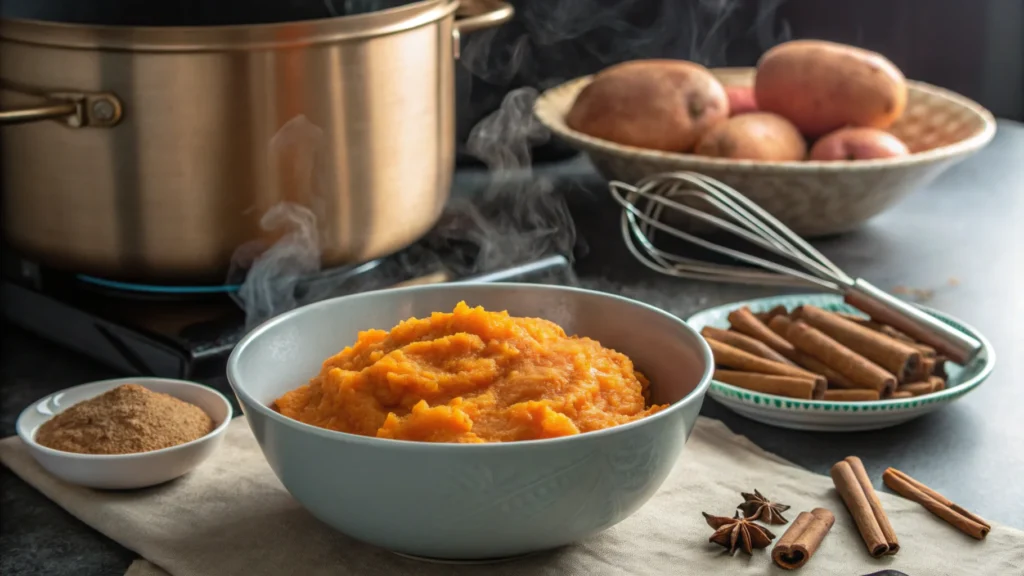
Nutrient Retention: Does Baking or Boiling Win?
Both baking and boiling are excellent cooking methods for sweet potatoes, but in the bake vs boil sweet potatoes pie debate, there are some differences to consider when it comes to retaining nutrients. Boiling sweet potatoes can cause some water-soluble vitamins, such as Vitamin C, to leach out into the water. If you plan to boil your sweet potatoes, be sure to use the water for other purposes, like soup, to avoid losing these nutrients.
- Baking tends to preserve more nutrients, especially those that are sensitive to water.
- Boiling may cause a slight reduction in some nutrients, but it still retains a significant amount of the fiber and vitamin A content.
If nutrient retention is a priority for you, baking might offer a slight advantage, but boiling is still a good option, especially when done quickly to minimize nutrient loss.
Time and Convenience: Which Method Saves More Effort?
In terms of time and convenience, boiling sweet potatoes is typically faster than baking them. Boiling usually takes about 15-20 minutes, whereas baking requires 45-60 minutes, depending on the size and type of sweet potatoes.
- Boiling is ideal when you’re short on time or want a quicker preparation process.
- Baking, however, requires less active involvement, allowing you to prepare other parts of the meal while the sweet potatoes cook.
Thus, in the bake vs boil sweet potatoes pie debate, if time is of the essence, boiling is the more convenient choice. However, if you have the time to let them roast, baking can offer a more hands-off approach.
Moisture Content: Managing Pie Consistency
The amount of moisture in your sweet potato filling can significantly affect the texture and consistency of your pie. In the bake vs boil sweet potatoes pie debate, managing moisture content is particularly important for achieving the perfect pie consistency.
- Baked sweet potatoes tend to be drier, which can help prevent the pie filling from being too runny. This is particularly beneficial if you’re using other liquid ingredients like milk or cream.
- Boiled sweet potatoes, on the other hand, tend to retain more moisture, which could lead to a slightly wetter filling unless carefully managed.
If you prefer a pie with a firmer filling, baked sweet potatoes may provide the ideal moisture level. If you are working with boiled potatoes, be sure to drain them thoroughly to avoid a soggy pie.
Energy Efficiency: Environmental and Cost Implications
From an environmental and economic standpoint, both baking and boiling sweet potatoes have their energy costs. In the bake vs boil sweet potatoes pie comparison, baking tends to use more energy as it requires the oven to run for a longer period. On the other hand, boiling sweet potatoes on a stovetop is more energy-efficient since it requires less time.
- Baking can lead to higher energy consumption, especially when the oven is used for extended periods.
- Boiling sweet potatoes, especially in a pressure cooker, may be a more cost-effective option, saving both time and energy.
Choosing the right method depends on your priorities. If saving energy is a key concern, boiling might be the better option.
Traditional Preferences in Sweet Potato Pies
Historically, the choice between baking or boiling sweet potatoes for pie has been influenced by regional preferences and traditions. In Southern cooking, baking sweet potatoes is often seen as the traditional method, as it allows for the development of a richer, more robust flavor.
- Many traditional recipes call for baked sweet potatoes, as it adds a layer of depth and complexity to the pie.
- However, boiled sweet potatoes have also been used, especially in areas where convenience and time-saving are prioritized.
Both methods have their merits, and personal preference plays a significant role in determining which one is better suited for a particular family recipe.
Recipe Adjustments Based on Cooking Methods
Depending on whether you bake or boil your sweet potatoes, you may need to make some adjustments to your recipe. In the bake vs boil sweet potatoes pie debate, if you’re using boiled sweet potatoes, you might need to add less liquid to the pie filling, as the potatoes will have more moisture. Conversely, with baked sweet potatoes, you might need to add extra milk or cream to achieve the right texture for your bake vs boil sweet potatoes pie.
Here are a few tips for adjusting your recipe:
- For boiled sweet potatoes, drain the potatoes well and be mindful of excess moisture.
- For baked sweet potatoes, consider mashing the potatoes with a little butter or cream to ensure a smooth filling.
Tips for Perfect Sweet Potato Pies, Regardless of Method
No matter which method you choose for preparing sweet potatoes, there are a few key tips to ensure your pie turns out perfectly.
- Use fresh ingredients: The freshness of your sweet potatoes and spices will have a significant impact on the final taste.
- Mash thoroughly: Whether baking or boiling, be sure to mash the sweet potatoes until they are smooth and free of lumps.
- Season well: Don’t forget the spices! A combination of cinnamon, nutmeg, and vanilla can bring your pie to life.
- Test for consistency: Make sure the pie filling is thick enough before adding it to the crust.
Expert Opinions and Common Mistakes to Avoid
When it comes to expert advice, many bakers recommend using baked sweet potatoes for a more flavorful pie. However, some people prefer the ease and speed of boiling. Common mistakes include over-boiling the sweet potatoes or not draining them properly, leading to a runny pie filling.
Experts suggest:
- Avoid overcooking: Both baking and boiling can lead to overly soft potatoes if not monitored closely.
- Test the filling: Before filling the pie crust, check the consistency of your filling to ensure it’s neither too runny nor too stiff.
FAQs: Bake or Boil Sweet Potatoes
Is it better to boil or bake sweet potatoes for pie?
It depends on your preferences. Baking sweet potatoes enhances their natural sweetness and flavor by caramelizing the sugars, making them ideal for a rich and flavorful pie. However, boiling sweet potatoes is quicker and results in a softer texture, which can also be perfect for smooth pie fillings. Both methods work well, but baking is typically preferred for a more complex flavor.
Is it best to bake or boil sweet potatoes?
The best method for cooking sweet potatoes largely depends on the dish you’re preparing. Baking enhances the natural sweetness and flavor, especially for desserts like sweet potato pie, while boiling is faster and often results in a softer texture for mashed dishes. For pie, baking is usually the favored choice due to its richer taste and firmer texture.
What is the best cooking method for sweet potatoes?
The best cooking method for sweet potatoes varies based on the intended dish. For a more flavorful, caramelized texture, baking is recommended. However, if you’re looking for a faster method or need a softer consistency, boiling might be the way to go. Roasting and steaming are other great options depending on the recipe.
Is it better to bake or boil potatoes?
The answer depends on what you’re preparing. For mashed potatoes or creamy dishes, boiling is often preferred as it creates a smoother texture. On the other hand, baking potatoes gives them a crispy skin and a fluffier interior, which is ideal for baked potato dishes or wedges. Both methods offer unique benefits depending on your desired outcome.
Conclusion: Choosing the Best Method for Bake vs Boil Sweet Potatoes Pie
Ultimately, the question of whether it’s better to bake or boil sweet potatoes for pie depends on your priorities. When it comes to the bake vs boil sweet potatoes pie debate, if flavor complexity and texture are key to your pie, then baking is often the better option. However, if you need a quicker, more convenient method with softer potatoes, then boiling is a solid choice for your bake vs boil sweet potatoes pie.
Both methods have their advantages, so experiment with each to find the one that works best for you. Regardless of which technique you choose, a sweet potato pie is sure to be a delicious and nourishing dessert that will impress your friends and family. For additional baking tips, explore How to Make Brioche French Toast Not Soggy: Tips and Tricks for Perfection.
